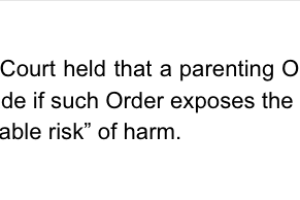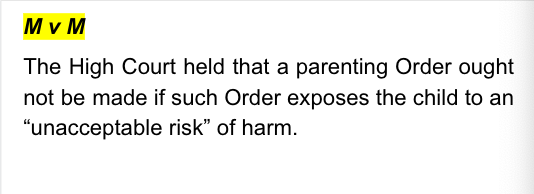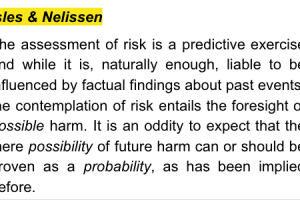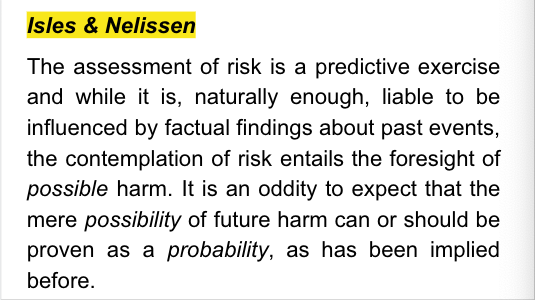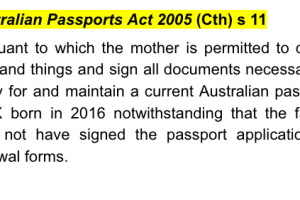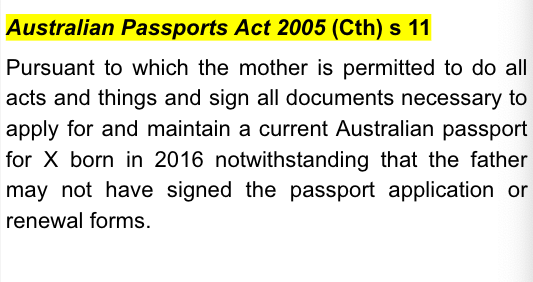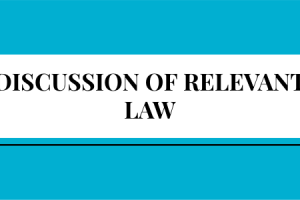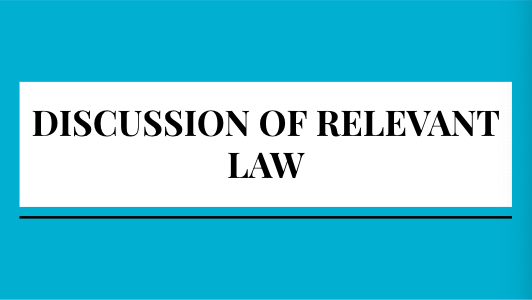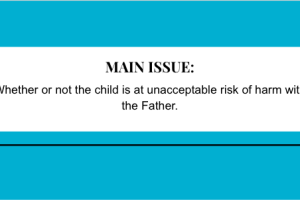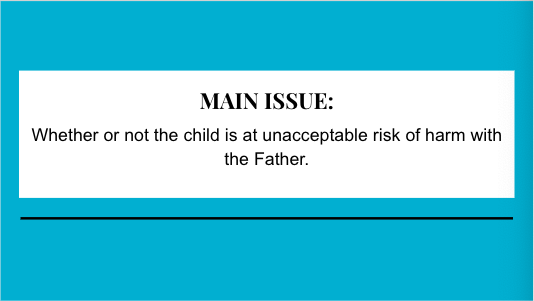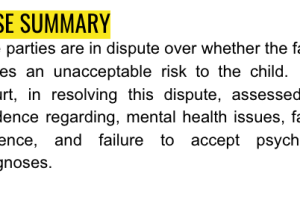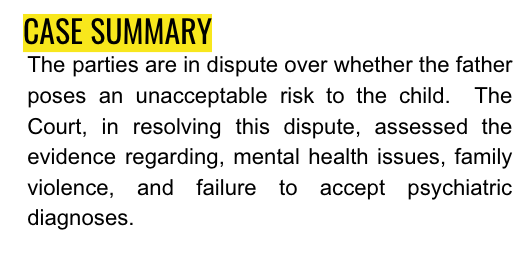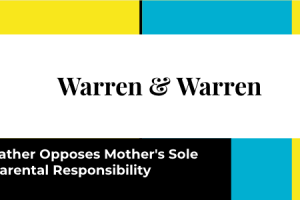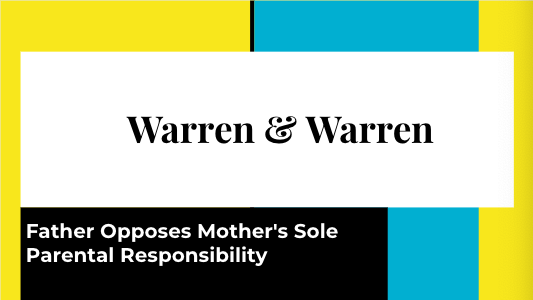- · 4742 friends
Father Opposes Mother's Sole Parental Responsibility

Warren & Warren [2022] FedCFamC2F 1556 (17 November 2022)
The parties are in dispute over whether the father poses an unacceptable risk to the child. The Court, in resolving this dispute, assessed the evidence regarding, mental health issues, family violence, and failure to accept psychiatric diagnoses.

Facts
The application before the court is in relation to the living arrangements for the child X born in 2016 who is six years of age (“the child”). Proceedings were commenced by Ms Warren aged 32 years (“the Mother”) on 25 June 2021. The Respondent is Mr Warren (“the Father”) aged 32 years. The parties commence living together in 2007 and were married in 2013. They separated on a final basis on 25 October 2017.
The Father re-partnered with Ms H (“Ms H”) in around 2018. Ms H has children from a previous relationship. The Mother has re-partnered with Mr J (“Mr J”). At the time of trial, the child was living with the Mother and spending time with the Father in accordance with Orders made on 14 October 2021. Those Orders provided that the child spend time with the father on alternate weekends from 9.00 am Saturday until 5.00 pm Sunday, and other specified time in school holidays.
The Father’s time with the child was conditional upon clean hair follicle testing, a restraint against consuming illicit drugs and opioid or prescribed type drugs and from driving whilst under the influence of any prescription drug that may make him drowsy or where driving is not recommended whilst the child is in his care. At the conclusion of the Trial, an oral application was made to vary the Father’s time. Orders were then made on 28 July 2022 for the Father to have professionally supervised time on one occasion each alternate weekend and video calls each Wednesday. The Father denies any family violence in his relationship with the Mother or indeed in his relationship with his current partner Ms H.
She gives affidavit evidence that during the relationship the Father threw her cat, grabbed her by the throat when she was pregnant and threatened self-harm. At the time of Trial, there was a current Protection Order in place between the Father and his current partner with the Police as the applicant. The police attended at their home on 16 February 2020, 13 August 2020, and 31 January 2021. Despite this, both the Father and his partner deny that their relationship is characterised by family violence. The Father has a long and troubled history with prescription drug abuse and illegal drugs.

Issue
Whether or not the child is at unacceptable risk of harm with the Father.

Applicable law
Australian Passports Act 2005 (Cth) s 11 - pursuant to which the mother is permitted to do all acts and things and sign all documents necessary to apply for and maintain a current Australian passport for X born in 2016 notwithstanding that the father may not have signed the passport application or renewal forms.
Analysis
The court is asked to accept that the Father is now free of illegal drugs. There is however no evidence of ongoing drug counselling or successful attendance at rehabilitation. The court is also asked to accept that after he last attempted self-harm, the Father has turned a corner. This discounts however the Police attendance at this home in January 2021 where he is reported to have been intoxicated and arguing with Ms H, who is documented as reporting to Police that she feared for her life.
The Mother raises concerns in relation to the child’s mental health and well-being arising out of exposure to family violence and drug use by the Father. The Father alleges the child is exposed to drug use, family violence and inappropriate conduct (such as showering with Mr J) in the Mother’s household. The suggestions regarding Mr J was not pursued at Trial but were the subject of a subsequent and unsuccessful application to adduce fresh evidence. In addition to the obvious risks of exposure to family violence, mental health issues and drug abuse, the opinion of the Family Report writer is that the Father’s impairments in functioning as regards empathy and intimacy, raise another more subtle level of risk, and may cause psychological and emotional harm to the child.
There is a plethora of evidence that the Father has engaged in antisocial and drug affected behaviours over a lengthy period of time. The pattern of behaviour relied on to make those diagnoses included the Father’s conceded serious substances use, drugs of addiction, injecting opioids and abusing drugs of addiction. It also included the family violence events referred to in the Queensland Police Service material and the motor vehicle accidents.
Conclusion
All previous Orders are hereby discharged. The mother have sole parental responsibility for making decisions about major long-term issues for the child X born in 2016 (“the child”). The child should live with the mother. The father shall spend supervised time with the child at the City B Children’s Contact Centre (“the contact centre”) or such other professional supervision service as may be agreed between the parties, at all times as can be accommodated by the contact centre/service, but not more often than on one occasion each alternate weekend.


